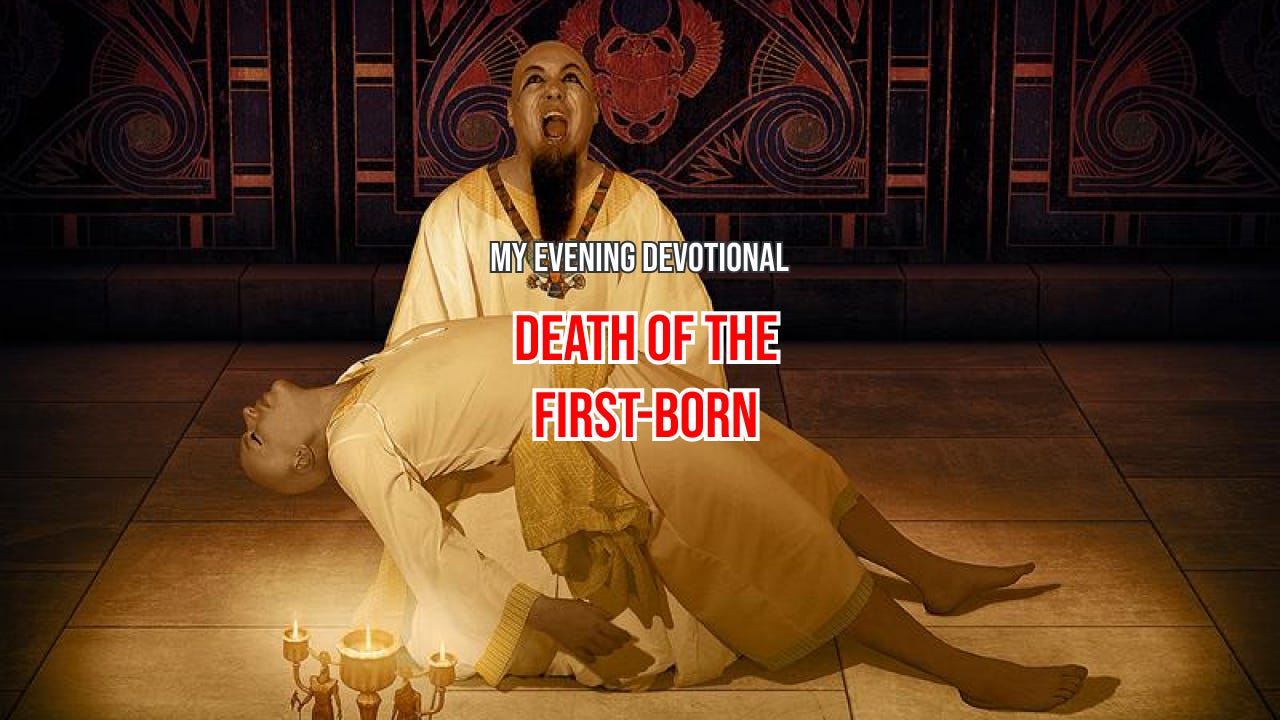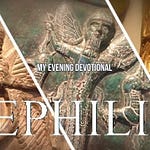Exodus 12:29–30 At midnight the Lord struck down all the firstborn in the land of Egypt, from the firstborn of Pharaoh who sat on his throne to the firstborn of the captive who was in the dungeon, and all the firstborn of the livestock. 30 And Pharaoh rose up in the night, he and all his servants and all the Egyptians. And there was ra great cry in Egypt, for there was not a house where someone was not dead.
We don’t usually think of Passover as a plague and we often forget that it came after a senate ceremony of 9 terrible events in the land of Egypt.
When Pharaoh persisted in his refusal to liberate the children of Israel, Moses and Aaron warned him that God would punish both him and his people. Passover is the most well known plague but we cannot just detach it from the 10 plagues.
The death of the first-born
Midnight of the fourteenth to the fifteenth of Nissan came, and God struck all first-born in the land of Egypt, from the first-born of King Pharaoh, down to the first-born of a captive in the dungeon, and all the firstborn of the cattle, exactly as Moses had warned. There was a loud and bitter wail in each house a loved one lay fatally stricken. Then Pharaoh called for Moses and Aaron during that very night, and said to them: "Arise, go out from among my people, both you and the children of Israel; and go, serve the Lord as you have said; and take your flocks and your herds, as you have said, and go, and bless me also." At last, then, the pride of the stubborn king was broken.
The departure
Meanwhile the Hebrews had been preparing for their hasty departure. With beating hearts, they had assembled in groups to eat the Paschal lamb before midnight, arrayed as they had been commanded. The women had taken from the ovens the unleavened cakes, which were eaten with the meat of the roasted lamb. The preparations were at last concluded, and all was ready. At the word of command, the whole nation of the Hebrews poured forth into the cool, still Eastern morning. But not even amidst their trepidation and danger did they forget the pledge given by their ancestors to Joseph, and they carried his remains, with them, to inter them later in the Promised Land.
Relation Between Easter and Passover
Passover (or Pascha) sanctified Israel's time and life as a sign pointing them to the coming Incarnation of the Lord, Jesus Christ. In this feast, they were to remember Him and what He did for them in delivering them from Egyptian bondage. But more importantly, it pointed them to His coming in the flesh. When John the Baptist saw Jesus, he told his followers, "Behold, the Lamb of God, who takes away the sin of the world!" (John 1:29). The Israelites were to know Him in the blood of a slain lamb, a sign pointing to Him as the Lamb of God. Yet when He became incarnate as this Lamb, they did not recognize their own Lord who had delivered them from Egypt (John 1:11).
To this day, Jews all over the world celebrate the Passover in obedience to this command. Passover and the story of the exodus have great significance for Christians also, as Jesus Christ fulfilled the Law, including the symbolism of the Passover (Matthew 5:17). Jesus is our Passover (1 Corinthians 5:7; Revelation 5:12). He was killed at Passover time, and the Last Supper was a Passover meal (Luke 22:7–8). By (spiritually) applying His blood to our lives by faith, we trust Christ to save us from death. The Israelites who, in faith, applied the blood of the Paschal lamb to their homes become a model for us. It was not the Israelites’ ancestry or good standing or amiable nature that saved them; it was only the blood of the lamb that made them exempt from death (see John 1:29 and Revelation 5:9–10).














Share this post